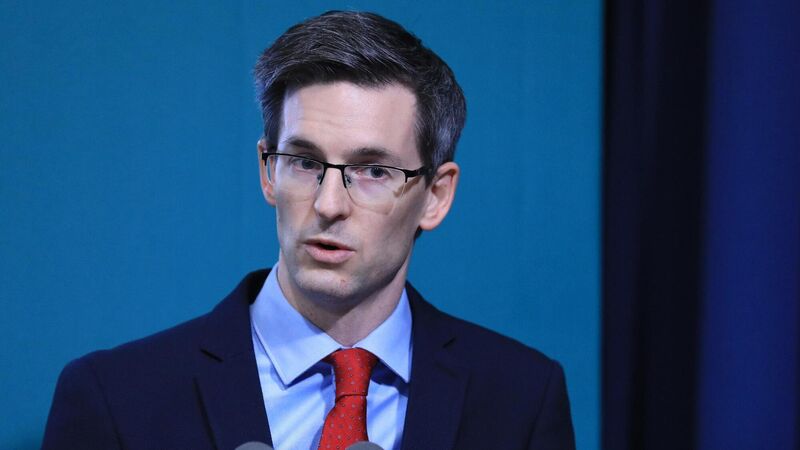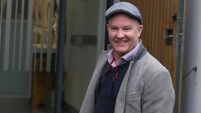Dr Glynn apologises to people angered by his call to do more to combat Covid-19

On Thursday, deputy CMO Dr Ronan Glynn pleaded with people to 'focus on just doing that little bit more'. It provoked angry responses on social media, with people expressing frustration at the effect of lockdowns on their finances and mental health. Picture: Julien Behal/PA Wire
Dr Ronan Glynn has apologised to people who had been angered by his call for the public to do more to fight the virus, saying his comments were taken out of context.
At a Nphet briefing on Thursday evening, the deputy chief medical officer praised people for doing as much as they have done to reduce case numbers.
However, he also said: “The message this evening has to be to ask everyone to focus on just doing that little bit more than you have been doing over the past week or two. Go back to where you were a fortnight or three weeks ago…”
He also said: “If every individual can just do that little bit more, over the next few weeks, we will stop another wave and we will get to a point where we have a sufficient proportion of the population vaccinated that we are beginning to see impacts like we are seeing internationally where countries are vaccinating more broadly at present.”
When a clip of the comments circulated on social media, people reacted with stories of extremely limited social lives, and how the lockdowns have impacted their finances and mental health. Others suggested criticism is better directed at the Government than individuals.
During a press conference on the AstraZeneca vaccination campaign yesterday, Dr Glynn said:
“The theme was gratitude from Nphet to the millions of people who complied with public health measures on St Patrick’s Day. We have sought over and over to acknowledge the fatigue and the exhaustion people are feeling with these measures.”
He also defended the use of examples of bereaved families at different points during the conferences, saying it is not about blame.
He likened Nphet to a doctor in a hospital giving bad news to families of an ill patient.
Dr Glynn also said he recognises there is a possibility the temporary pause of the AstraZeneca vaccine could lead to vaccine hesitancy.
A survey carried out by Amarach the day after AstraZeneca was halted found 52% of people would not hesitate to take any vaccine, down from 61% two weeks earlier.
The percentage who said: “I do not think it will be safe” rose to 6% from 3%.
Professor Karina Butler, chair of the National Immunisation Advisory Committee said: “The safety of vaccines is paramount. The public should be reassured by the swift and thorough investigations into a very small number of serious but very rare adverse events.”





